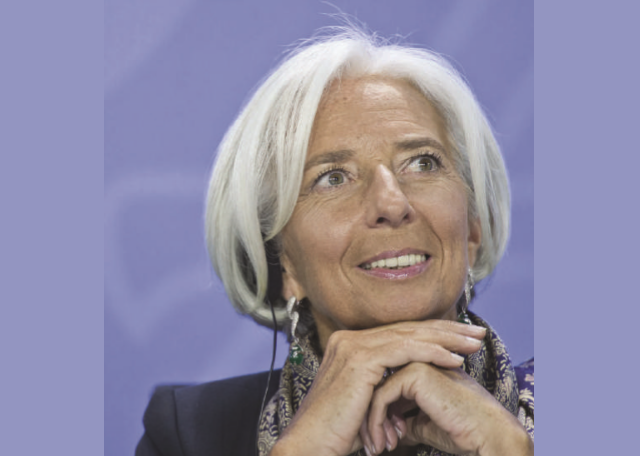
Lagarde is visiting when the government is desperate for new money but in no mood to listen. Usually that means no deal but possibly not when the IMF and Museveni need each othe.
Meetings between teams from IMF and planners of Uganda’s economy, especially President Yoweri Museveni, have historically involved divergent perspectives but common goals. Part of the reason is that they usually happen when the economy is undergoing tough strain imposed on it by a preceding election. It happened in 1990 when then-IMF boss Michel Camdessus visited, in 2007 when then Deputy Managing Director, Takatoshi Kato, and now when current IMF boss, Christine Lagarde, is visiting.
Preceding the visit by Camdessus, Uganda had just held its first election for members of parliament; then called the National Resistance Council (NRC) in February 1989. At the time of the election, Uganda’s economy was growing at a rate of 6.5%. However, this rate dropped dramatically in 1991 to about 2%. These figures are from economywatch.com and have been adjusted to constant prices for all years.
When Takatoshi Kato visited, the country had just gone through the multiparty referendum in 2005 and the first multiparty elections in February 2006. The economy had been growing at a fast rate of 7% in 2006, 8% in 2007, and grew at a rate of 10.4% in 2008. Only the 1995 growth rate of 11.3% had been higher in Uganda’s history. However, it has been on downward trend since then to the current projected 5.2% for the FY2016/17. What will be the impact of the visit by the current IMF boss, Christine Lagarde?
During previous visits of IMF teams, details of Lagarde’s engagements with Ugandan officials are being carefully guarded and will publicly involve on speeches and press releases. The IMF Uganda country is not talking to journalists. Finance Minister Matia Kasaija has superfluously described Lagarde’s visit as enhancement of the already existing cordial and fruitful relations between Uganda and the IMF. Any details from the discussions will have to be ferreted from anonymous sources.
Fred Muhumuza, a development economist and former advisor to the Minister of Finance, sees the visit as a red flag.
“By the time the managing director decides to leave Washington, D.C for Kampala, Uganda, just know there is something they are looking for or something they did not understand in their periodical policy statements,” he told The Independent in an interview.
He said the country’s soring trade deficit, swelling public debt, and economic slowdown in the region are possibly up for discussion.
Muhumuza says Uganda has recorded success in its economic policy agenda and avoided resorting to short term borrowing from the IMF in the past 15 years. But is this about to change?
Inflation, which was going up at a rate of 30% at the end of 2011, the highest since 1993 when IMF/World Bank SAPs were getting space in the country, has been brought down by BoU’s inflation targeting policy – centred around the Central Bank Rate – to within range of the long term 5% target.
 The Independent Uganda: You get the Truth we Pay the Price
The Independent Uganda: You get the Truth we Pay the Price



